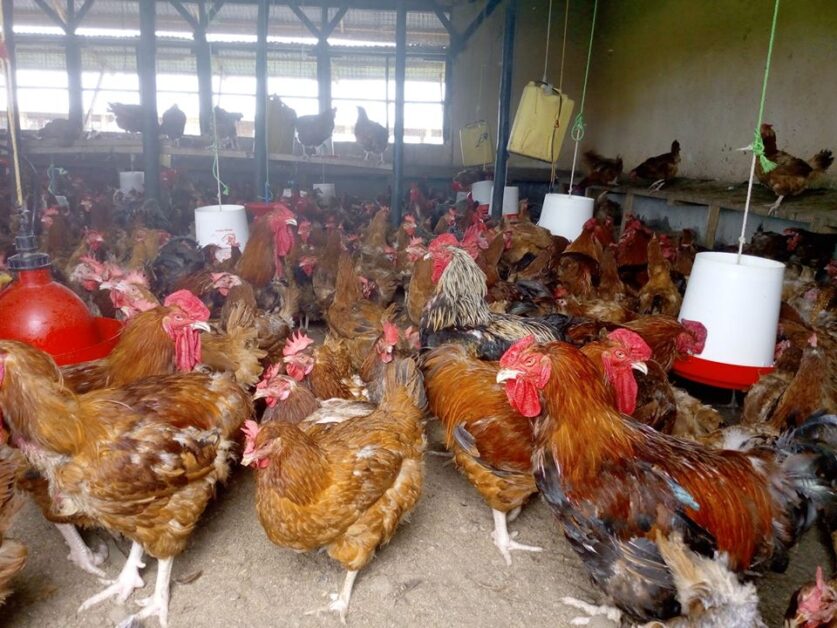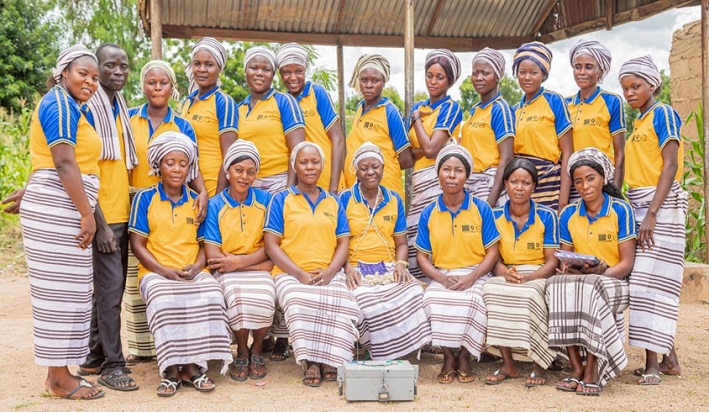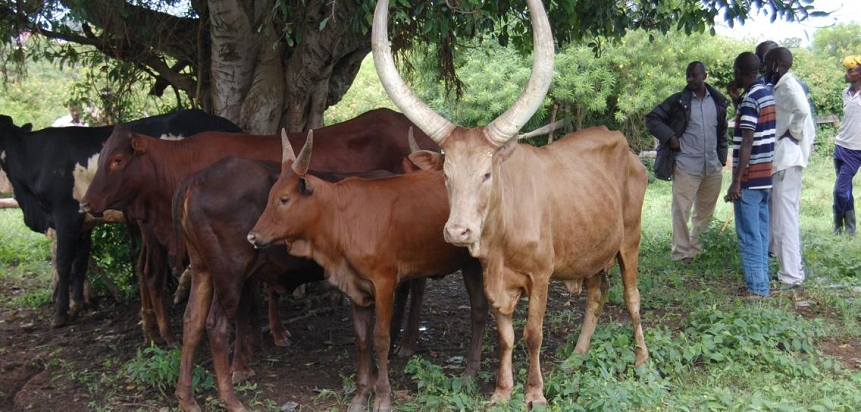As part of Ministry of Agriculture, Animal, Industry and Fisheries (MAAIF)’s efforts to ensure a competitive, profitable and sustainable agricultural sector in Uganda, the National Animal Genetic Resources Centre and Data Bank (NAGRC & DB), a MAAIF Agency has embarked on the breeding program of the rainbow rooster chicks which will later be distributed to low-income families.
Daniel Epinyu, the Acting Manager of Lusenke Government Stock Farm says the main purpose of this arrangement is to provide income for low-income families while providing nutrition to rural communities through rainbow rooster eggs and meat.
About Rooster
Rainbow rooster is a dual purpose, low input, multicolored chicken originated from India. It was bred by Indbro Research and Breeding Farms in Southern India as part of a food program by the Government.
Rainbow roosters mature between 4 to 6 months. When managed as a layer, with commercial feeds, rainbow roosters will lay 160-180 eggs in 72 weeks (16 months). At the end of lay, the bird weight is about 3kgs. The average egg weight is 60 grams.
When managed as meat birds, the rainbow rooster will attain the average weight of 2kgs in 8 weeks under commercial feeds. At 8 weeks, rainbow roosters meat birds will have consumed 4.9 kgs of feed.

Under scavenging conditions, the rainbow rooster’s growth rate is a bit slower, with the bird attaining the weight of 1.3kgs in 9 weeks. The average meat production for rainbow roosters is 3kgs for male rainbow roosters and 1.9 to 2.2 kgs for hens.
According to Indbro, rainbow roosters are able to sustain free-range and backyard rearing conditions and their productivity is much higher than others.

Advantages of rainbow rooster birds
- It is a low input, dual purpose, hardy bird with high productivity.
- Desirous features of indigenous birds. It is capable of thriving in harsh village conditions more than the non-descript flock variety.
- The males are tall, majestic, active and agile (ability to move quickly and easily) and can attain body weight of above 4.5kgs at full maturity.
- The females are large, full bodied, active and agile.
- One female bird is capable of laying 180 – 200 eggs per one life.
- Cycle (i.e per year) and takes a gestation period of about 72 weeks to lay eggs.
- Rainbow Rooster is strongly resistant to various diseases.
Common poultry diseases, symptoms and control
Bacterial diseases, e.g fowl typhoid.
Fowl typhoid is primarily a disease of pullets and mature chickens.
It is transmitted through eggs, droppings of sick birds and any contamination from food and water.
Symptoms:
- Difficulty in breathing of the bird.
- Depression /dullness
- Greenish yellow diarrhea
- Dropping wings, sleepy eyes and loss of appetite.
Control:
- Treat with appropriate antibiotics.
- Maintain cleanliness in the poultry.
- Regular vaccination of the birds.
Protozoan disease e.g coccidiosis
Coccidiosis is a disease caused by the invasion of the digestive tract by microscopic single celled protozoan parasites called Coccidia.
It spreads from bird to bird through eating or drinking contaminated food water, litter or any other material contaminated with coccidian pathogens.
Symptoms of coccidiosis
Diarrhea which may be whitish or blood stained.
Dull, weak bird with raffled feathers
Control:
- Ensure proper hygiene in a poultry house.
- Use recommended coccidiostats in feeds and water e.g Amprolium.
- Treat birds with appropriate drugs against the disease and avoid overcrowding.
Viral diseases
This include diseases such as Newcastle diseases (NCD), Fowl Pox, and Gumbora.
Newcastle disease:
This is a highly contagious disease of poultry birds caused by a virus (Paramyxovirus).
The virus can be spread to birds through contaminated air containing of the pathogen, Meat from dead birds containing the virus and contaminated feeds, water, dishes and cages.
Symptoms of Newcastle diseases:
- Watering -Greenish diarrhea.
- Staggering motion of the bird.
- High mortality rate in birds
- Nasal discharges
Control of Newcastle
- Avoid introducing New stock
- Follow quarantine Measures
- Kill infected birds.
- Cleaning and Disinfecting the house
- Vaccination of birds.
Care during vaccination
- Vaccinate only Healthy flocks.
- Do not vaccinate during very hot and very cold weather conditions.
- Store vaccines in refrigeration at 2-80C.
- Maintain cold chain till the vaccine is administered.
- Never expose the vaccine to direct sunlight.
- Never use frozen diluents.
- Use the diluted vaccine within one hour of preparation keeping it in cool condition
- Minimum of six to seven days gap should be given between two vaccinations.
- Do not vaccinate in early stages (within 10 days) through drinking water.
- Use skim milk powder (Lazo milk) at 3-5 gm per liter of water so as to stabilize the vaccine and Neutralize chlorine in the water.
- Burn / disinfect all used and opened vaccine ampoules to prevent accidentals cross contamination.
Feeds:
Feeds include Dark Mash for young chicks, Growers Mash for the pullets, Broilers finisher /male feeds for the males and the layers mash for the layers.
For every chick, quality and quantity of feeds change according to the season and the chicks body weight.
Use 5kgs line grinded maize for first 4-5 hours and after give chick starter feed.
The feeding management processes starts with providing sufficient number of feeders of proper sizes.
The expenditure of feed can be reduced by minimizing the feed wastage and by proper feed management including rodent control.
Credit: Office Of Agric Minister






I need to start this project, I need to know more about Rooster chicken keeping and also chicken keeping in General because I will be new to it,
I want to know how much they are sold in Uganda when still a day to 7 days old.
And I need to know more about farming (i.e. Goats, sheep, chicken, and ducks)
Thank you.
Where are these chicken incase of booking
Can they be available by 1 SEP? And how much
Indeed the contacts and the prices for me to make my orders iam based in siaya/rarieda constituency
I am going to start this project asop in kyenkyanzi
I have 1 months rainbow rosters monthly in lira city .0786056166
I am interested in rearing rainbow roasters. Where can I get the chicks and at how much per chick
Hello, where can I buy the chicks are they available today I need 200birds
0776040337
Jacob
I would love to start with afew but how can i get. Am in Bukedea.
I would like to buy 100 day old chicks , where can I find them . lam in Nakasongola
This has been educative where can i buy this breed of birds am in kiboga
I would like to buy rainbow chicks where can I get them. Thanks
This seems to be a good bird how can I get the parent so that I join this breeding program. We already have a community hatchery and are closely working with Mbarara zardi
I recently started poultry farming. I have read this brief about the rainbow rooster chicken and would be interested in learning more about it and venturing into it. Whom should I contact.
Thank you.